
Batch 2 (2025-26)
Research Title:
Encounters with Modernity: Intellectual Responses of Tilak, Ranade, and Agarkar in Late 19th-Century Maharashtra
Bio:
Adwait Athawale is an author and independent researcher whose work bridges the sciences and the humanities with uncommon depth. He holds an MSc in Physics and a Postgraduate Diploma in Data Science from IIIT Bengaluru, grounding his inquiries in both analytical rigor and interpretive insight. His research engages with intellectual history, cultural philosophy, and Indian Knowledge Systems (IKS), with a particular interest in the ways ideas shape societies across time.
Mr. Adwait Bhushan Athawale
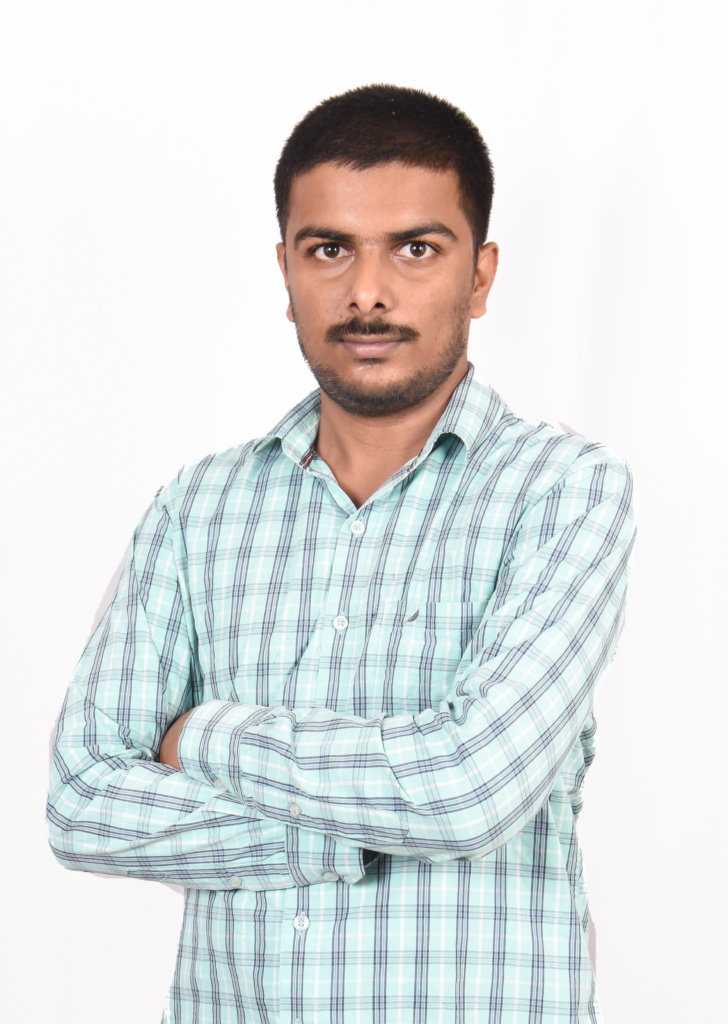
Adwait Athawale is an author and independent researcher whose work bridges the sciences and the humanities with uncommon depth. He holds an MSc in Physics and a Postgraduate Diploma in Data Science from IIIT Bengaluru, grounding his inquiries in both analytical rigor and interpretive insight. His research engages with intellectual history, cultural philosophy, and Indian Knowledge Systems (IKS), with a particular interest in the ways ideas shape societies across time.
At present, he is studying the reception of European modernity in late 19th- and early 20th-century Bharat, tracing its influence on literature, law, and education, and examining how it unsettled long-standing Bharatiya worldviews. Through this work, he seeks to illuminate the philosophical currents that underlie historical change while contributing to the preservation and critical study of Bharat’s intellectual heritage.
Research Title:
The Emergence of Dharma in India's Civilizational History - Memory, Metaphor, and Materiality
Bio
Amritanshu brings together thirteen years of professional expertise in product development with a lifelong engagement with the study of ancient Indian history. His writings traverse history, civilizational thought, technology, and fiction, reflecting both analytical depth and creative imagination. Over the course of his career, he has contributed to diverse industries, including decorative coatings, hyperlocal services, and e-commerce.
Mr. Amritanshu Pandey
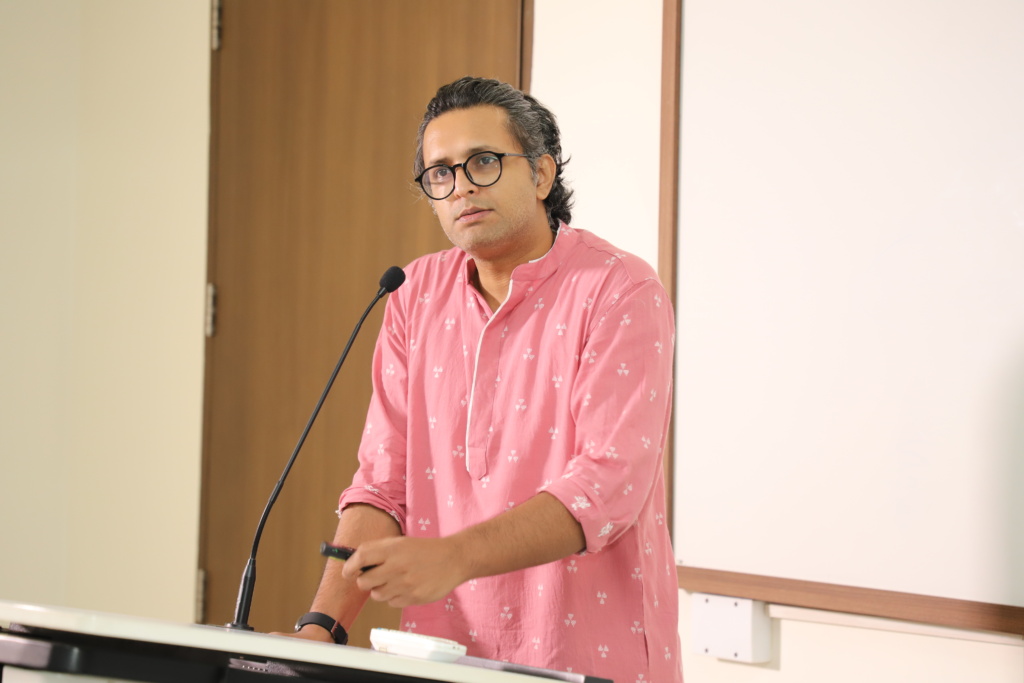
Amritanshu brings together thirteen years of professional expertise in product development with a lifelong engagement with the study of ancient Indian history. His writings traverse history, civilizational thought, technology, and fiction, reflecting both analytical depth and creative imagination. Over the course of his career, he has contributed to diverse industries, including decorative coatings, hyperlocal services, and e-commerce. He presently serves as Director of Strategy at Bṛhat, a cultural research, content, and consultancy firm.
His historical pursuits draw inspiration from Shri K.M. Munshi’s call for a history that embodies the “will of a people to form into an organic whole”, a vision he regards as central to the task of civilizational renewal. Alongside this, his passion for world-building and storytelling finds expression in the creation of cultural fiction worlds and narratives.
Amrit’s essays on history and civilisation can be explored at Bṛhat and Fractal Mandala.
Research Title:
The Andaman Archives: A Brief History of Select Revolutionaries, Their Thought, and the Legacy of Colonial Incarceration
Bio:
Aruni Chauhan holds a Master’s degree from the Faculty of Social Sciences, University of Delhi. She has previously served as Guest Faculty at Shri Ram College, Saragaon. Her research engages with questions of marginality, identity politics, and memory studies, with a particular emphasis on the socio-political dynamics of colonial South Asia.
Ms. Aruni Chauhan
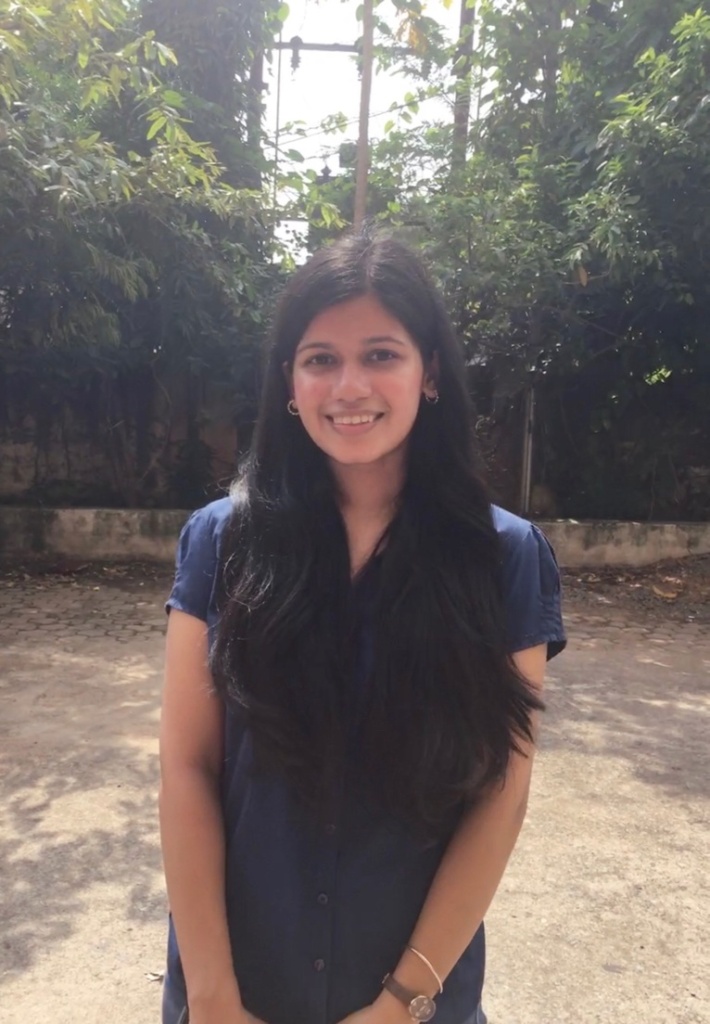
Aruni Chauhan holds a Master’s degree from the Faculty of Social Sciences, University of Delhi. She has previously served as Guest Faculty at Shri Ram College, Saragaon. Her research engages with questions of marginality, identity politics, and memory studies, with a particular emphasis on the socio-political dynamics of colonial South Asia.
She has presented her work at several national and international conferences, and her scholarship has been published in an ISBN volume. Committed to advancing critical and nuanced perspectives within South Asian studies, Aruni continues to explore the intersections of history, politics, and memory with intellectual rigor and creative insight
Research Title:
Bloodbath for Khalifa: The Moplah Rebellion of 1921
Bio:
Ganesh Puthur is a bilingual writer who works in both English and Malayalam. A recipient of the Sahitya Akademi Yuva Puraskar, he has also been honoured with a Junior Fellowship from the Ministry of Culture, Government of India in recognition of his contributions towards literary and cultural excellence.
Mr. Ganesh Puthur
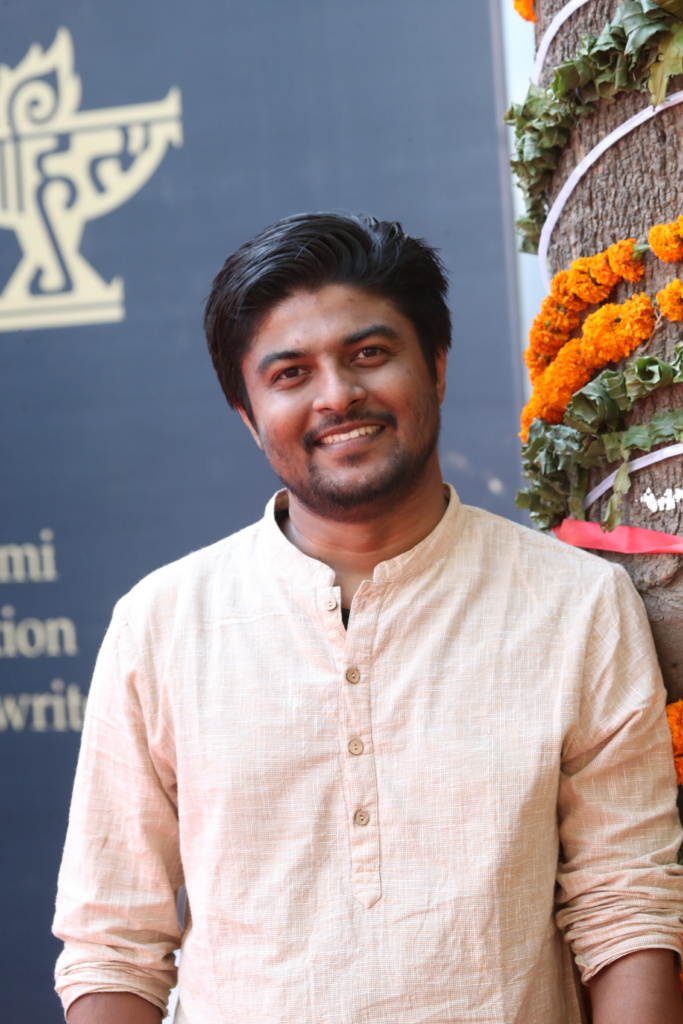
Ganesh Puthur is a bilingual writer who works in both English and Malayalam. A recipient of the Sahitya Akademi Yuva Puraskar, he has also been honoured with a Junior Fellowship from the Ministry of Culture, Government of India in recognition of his contributions towards literary and cultural excellence.
Ganesh holds a Master’s degree in History from the University of Hyderabad. His writings, which span international affairs, contemporary politics, history, and literature, appear regularly in various impactful publications. Several of his works have been translated into Bangla and Kannada, extending his reach across linguistic and cultural landscapes.
Research Title:
Goddess: A Global History
Bio:
Prof. (Dr.) Hindol Sengupta is a multiple award-winning historian, author of twelve acclaimed books, and a leading public intellectual whose work spans history, politics, economics, culture, and spirituality. He serves as Professor of International Relations and Director of the Jindal India Institute at O. P. Jindal Global University. His scholarship is animated by a core concern: understanding India’s civilizational rise and the political, social, and cultural forces that shape it.
Dr. Hindol Sengupta
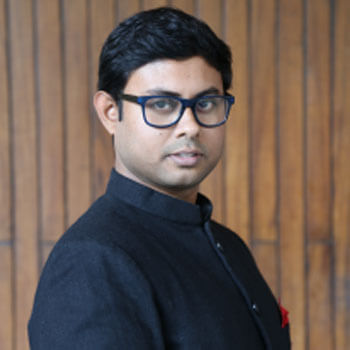
Prof. (Dr.) Hindol Sengupta is a multiple award-winning historian, author of twelve acclaimed books, and a leading public intellectual whose work spans history, politics, economics, culture, and spirituality. He serves as Professor of International Relations and Director of the Jindal India Institute at O. P. Jindal Global University. His scholarship is animated by a core concern: understanding India’s civilizational rise and the political, social, and cultural forces that shape it.
A prolific writer, his works include Soul and Sword: The History of Political Hinduism, The Man Who Saved India, and Being Hindu. He has been honoured with the Sahitya Akademi Award, the Valley of Words Prize, the Wilbur Award, and the Kalinga Literature Festival Award, among others. Formerly Vice President (Strategy & Research) at Invest India and Editor-at-Large at Fortune India, he also serves as a World Economic Forum Young Global Leader, bringing Indian perspectives into global intellectual and policy dialogues.
Research Title:
Trading Frontiers: Northeast India and the History of Border Economies
Bio:
Dr. Rouhin Deb is currently the Chief Economist in the Chief Minister’s Secretariat, Government of Assam, where he shapes regional economic strategies and policymaking. As a Visiting Professor at the Development Management Institute, Patna, he contributes to nurturing the next generation of development leaders. He is also the author of From Frontiers to Heartland, published by Rupa, which explores themes of regional development and integration.
Dr. Rouhin Deb
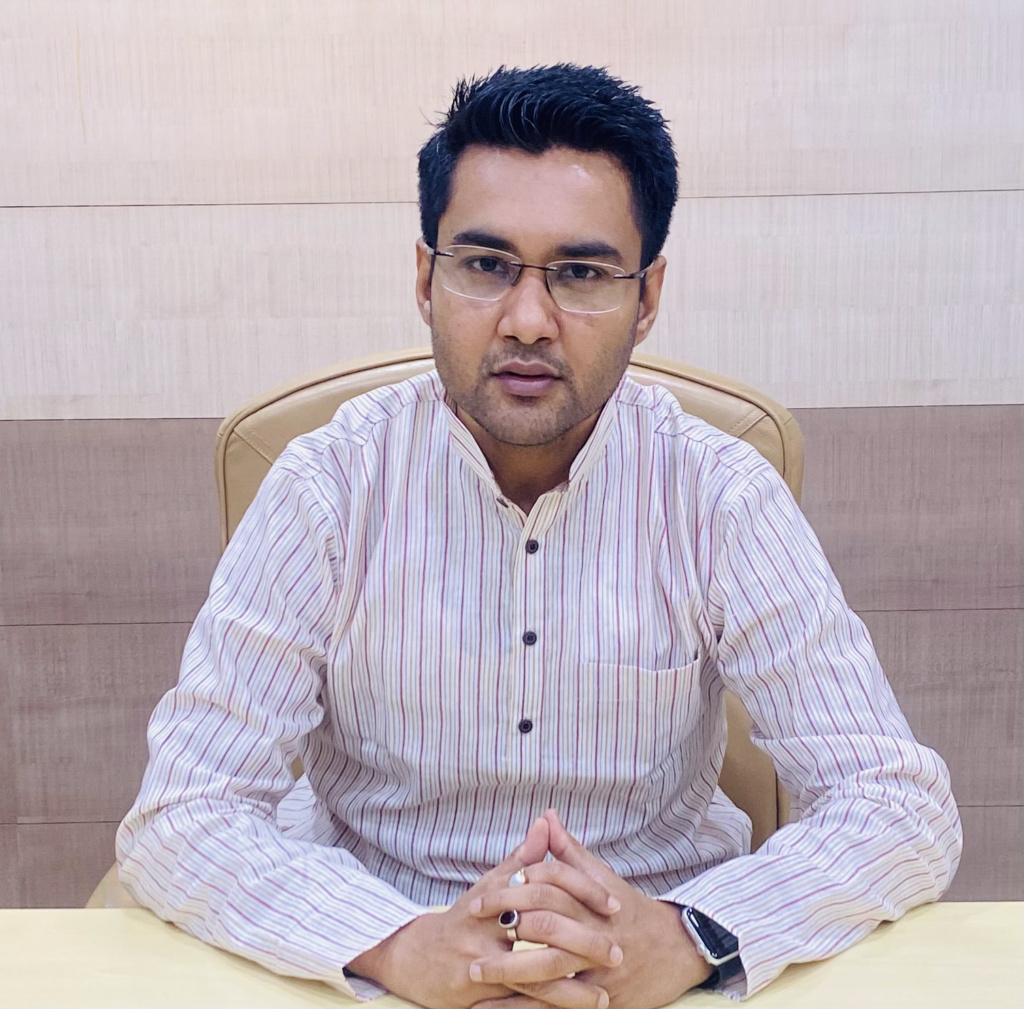
Dr. Rouhin Deb is currently the Chief Economist in the Chief Minister’s Secretariat, Government of Assam, where he shapes regional economic strategies and policymaking. As a Visiting Professor at the Development Management Institute, Patna, he contributes to nurturing the next generation of development leaders. He is also the author of From Frontiers to Heartland, published by Rupa, which explores themes of regional development and integration.
Previously, Dr. Deb was associated with premier Indian think tanks, including the Observer Research Foundation (ORF), where his research focused on informal competition, strategic economic choices, and international business dynamics.
An active contributor to public debate, he writes regularly for leading national publications such as The Financial Express, The Economic Times, The Hindu BusinessLine, Business Standard, and Mint, offering insights on policy, economics, and the development of North-East India.
Research Title:
From Hero to Deity: History and Antiquity of Rāma Worship
Bio:
Rudra Vikrama Srivastava is an archaeologist and epigraphist whose work focuses on the cultural and political history of ancient and early medieval North-Central India. He earned his Master’s degree in Ancient Indian History, Culture and Archaeology from Banaras Hindu University and has since pursued extensive independent research, particularly in the Vindhyan region. His fieldwork has led him to explore numerous archaeological sites, with a strong emphasis on inscriptions as vital sources for reconstructing India’s past.
Mr. Rudra Vikrama Srivastava
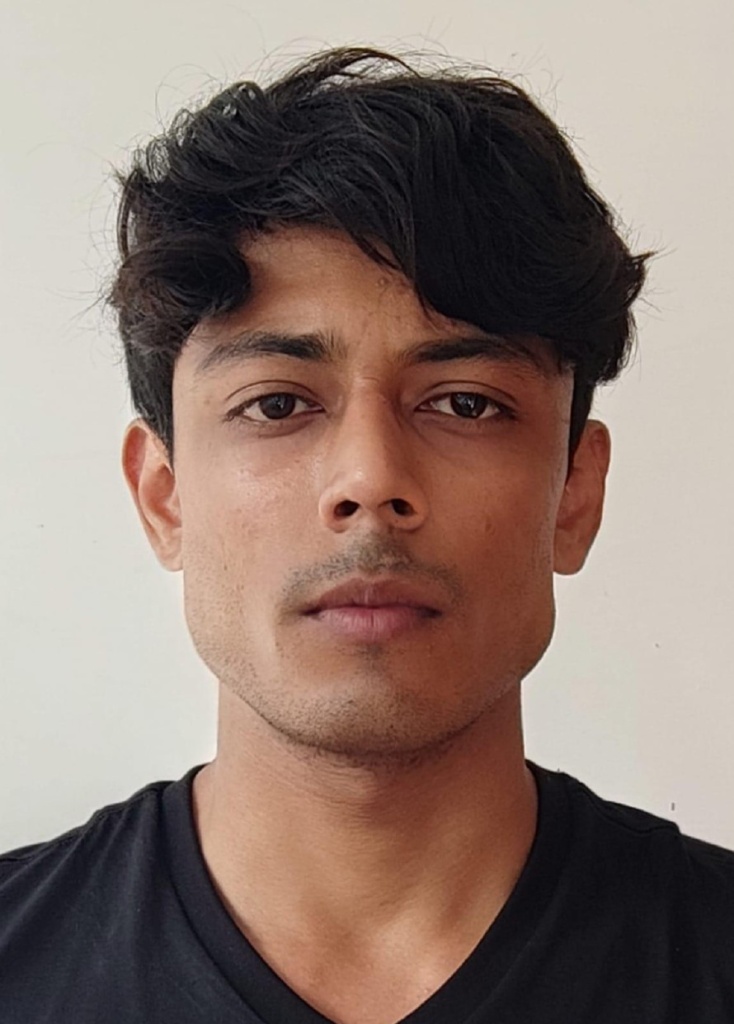
Rudra Vikrama Srivastava is an archaeologist and epigraphist whose work focuses on the cultural and political history of ancient and early medieval North-Central India. He earned his Master’s degree in Ancient Indian History, Culture and Archaeology from Banaras Hindu University and has since pursued extensive independent research, particularly in the Vindhyan region. His fieldwork has led him to explore numerous archaeological sites, with a strong emphasis on inscriptions as vital sources for reconstructing India’s past.
Among his recent contributions is the discovery of an 11th-century praśasti inscription at Garhwa, Prayagraj, identified as the earliest known reference to a temple dedicated to Lord Rama. This finding significantly enriches our understanding of the evolution of Ramayana traditions and the religious landscape of the period. Srivastava’s work continues to illuminate the intersections of archaeology, epigraphy, and India’s civilizational history.
Bio:
Kushagra Aniket is an economist and management consultant based in New York, specializing in technology strategy, and a scholar of languages with a deep interest in Sanskrit. A Tata Scholar, he graduated summa cum laude from Cornell University with degrees in economics, mathematics, and statistics, and later earned his MBA in finance with Dean’s Honours as a Columbia Fellow from Columbia University.
His recent book, Krishna Niti: Timeless Strategic Wisdom (co-authored with Nityananda Misra), explores the enduring strategic insights of Krishna in the Mahabharata. He is also credited with deciphering and reconstructing the 11th-century Rama Inscription from Prayagraj, alongside other inscriptions from India’s ancient and early medieval past.
Mr. Kushagra Aniket
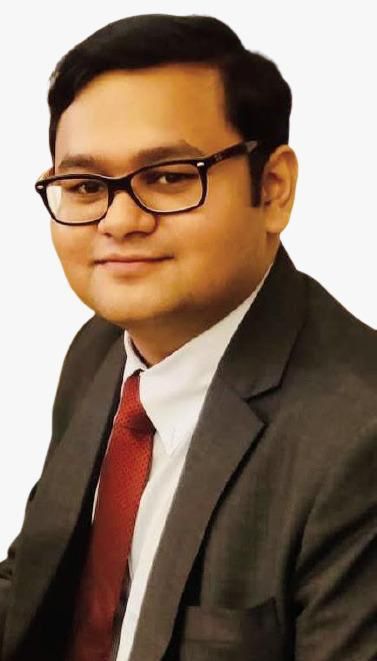
Kushagra Aniket is an economist and management consultant based in New York, specializing in technology strategy, and a scholar of languages with a deep interest in Sanskrit. A Tata Scholar, he graduated summa cum laude from Cornell University with degrees in economics, mathematics, and statistics, and later earned his MBA in finance with Dean’s Honours as a Columbia Fellow from Columbia University.
His recent book, Krishna Niti: Timeless Strategic Wisdom (co-authored with Nityananda Misra), explores the enduring strategic insights of Krishna in the Mahabharata. He is also credited with deciphering and reconstructing the 11th-century Rama Inscription from Prayagraj, alongside other inscriptions from India’s ancient and early medieval past.
Kushagra’s writings on Indian languages and culture have appeared across leading media platforms, and he has been invited to deliver lectures at premier universities in India and the United States.
Research Title:
Reflections from the Past: Exploring the Origins of Indian Foreign Policy in the Foundational Years after Independence, 1946-1949
Bio:
Dr. Sanchi Rai is an Assistant Professor at the Faculty of International Studies, South Asian University, New Delhi. She holds a Ph.D. in International Politics from Jawaharlal Nehru University, specialising in the early origins of Indian foreign policy, with extensive archival research experience in both the United Kingdom and India. She has been awarded research grants from the Charles Wallace India Trust and the Indian Council of Social Science Research.
Dr. Sanchi Rai
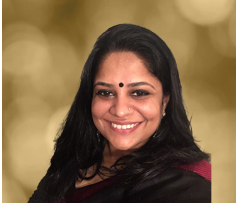
Dr. Sanchi Rai is an Assistant Professor at the Faculty of International Studies, South Asian University, New Delhi. She holds a Ph.D. in International Politics from Jawaharlal Nehru University, specialising in the early origins of Indian foreign policy, with extensive archival research experience in both the United Kingdom and India. She has been awarded research grants from the Charles Wallace India Trust and the Indian Council of Social Science Research.
Her work has been presented at leading international conferences in Canada, Singapore, the United Kingdom, and the United States, and published in reputed journals, including Millennium: Journal of International Studies. In 2015, she was invited as a Visiting Scholar at the SOAS South Asia Institute, University of London. Drawing on her expertise in archival research, she also served as Principal Research Assistant on the “Ideas of India” project at New York University, Abu Dhabi. She has previously taught at Ambedkar University and RV University.
Research Title:
India’s Nightingale’s Forgotten Daughter : Padmaja Naidu – The Other Side
Bio:
Srishti Jha is a writer, journalist, and editor with experience across leading media platforms, including Hindustan Times and India Today. Her debut work as a translator, The Queen of Indian Pop: The Authorised Biography of Usha Uthup—originally written in Hindi by senior journalist Vikas Kumar Jha—was published by Penguin India in 2022.
Ms. Srishti Jha
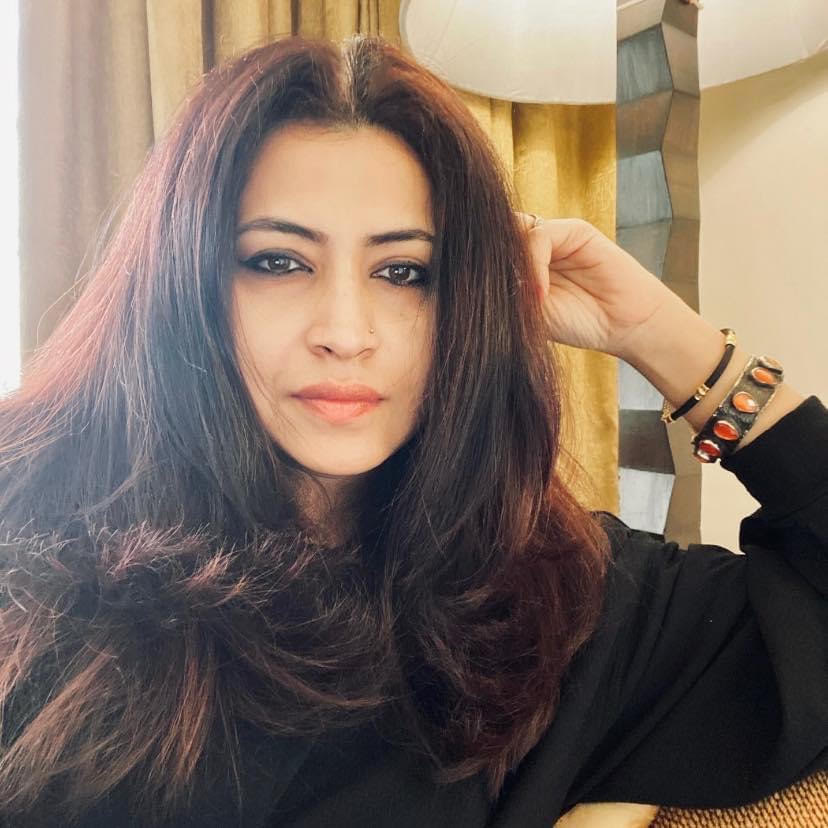
Srishti Jha is a writer, journalist, and editor with experience across leading media platforms, including Hindustan Times and India Today. Her debut work as a translator, The Queen of Indian Pop: The Authorised Biography of Usha Uthup—originally written in Hindi by senior journalist Vikas Kumar Jha—was published by Penguin India in 2022.
She has been invited as a speaker at prominent literary and cultural forums such as the Jaipur Literature Festival, Kerala Literature Festival, Khushwant Singh Lit Fest, Kolkata Literary Meet, Tata Literature Live, Sharjah International Book Fair, and the Prabha Khaitan Foundation, among others. Extending her creative pursuits to screenwriting, she was part of the Writers’ Room for Aarya (Season 3).
Srishti holds a postgraduate degree in History from Miranda House, University of Delhi, and another in Fashion Journalism from the London College of Fashion, University of the Arts, London.
Research Title:
Colonial Encounters with Sanskrit: Challenges and the Reconfiguration of Tradition
Bio:
Dr. Tilak M. Rao is Senior Fellow in Sanskrit Studies at the Foundation for the Study of Indian Culture (FSIC), Bengaluru. He holds a Ph.D. in Sanskrit Vyākaraṇa and has over a decade of experience in teaching and research. Initiated into Sanskrit at the age of ten, he underwent twelve years of rigorous training in gurukulams, mastering ten principal Upaniṣads and the complete chanting of the Kṛṣṇa-Yajurveda (Taittirīya recension). His scholarship spans Kāvya, Pāṇini’s Aṣṭādhyāyī, Vedānta, Nyāya, Sāṃkhya, and Yoga.
Dr. Tilaka M Rao
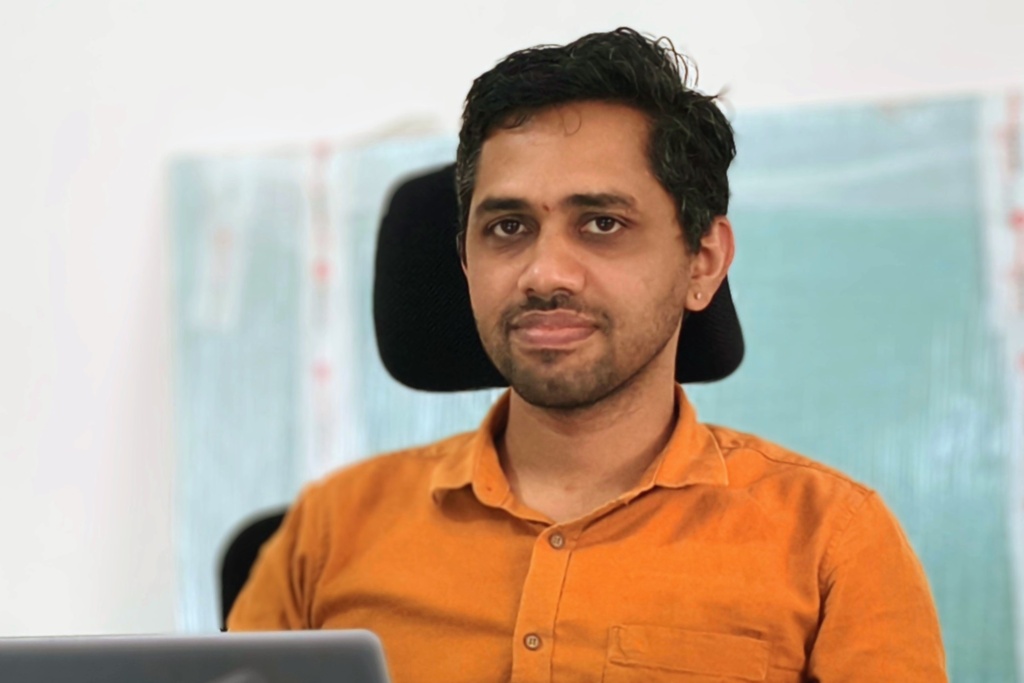
Dr. Tilak M. Rao is Senior Fellow in Sanskrit Studies at the Foundation for the Study of Indian Culture (FSIC), Bengaluru. He holds a Ph.D. in Sanskrit Vyākaraṇa and has over a decade of experience in teaching and research. Initiated into Sanskrit at the age of ten, he underwent twelve years of rigorous training in gurukulams, mastering ten principal Upaniṣads and the complete chanting of the Kṛṣṇa-Yajurveda (Taittirīya recension). His scholarship spans Kāvya, Pāṇini’s Aṣṭādhyāyī, Vedānta, Nyāya, Sāṃkhya, and Yoga.
He is the author of Aṣṭādhyāyī-Praveśa, a primer on Sanskrit Vyākaraṇa, and has taught at several academic institutions. His current research focuses on epistemic obstacles (upādhis) in engaging Sanskrit texts, with a particular interest in colonial encounters with Sanskrit traditions and their enduring impact on interpreting foundational works such as the Upaniṣads, Bhagavadgītā, Arthaśāstra, and Dharmaśāstras.